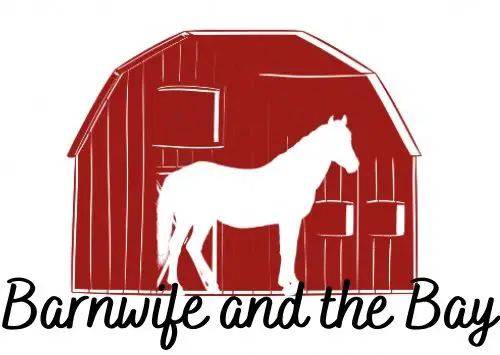
I call it “the magic of horses”. That *something* about working with a 1,000+ pound flight animal that’s good for the soul. But there is more and more evidence that it’s good for the brain too.
The majority of the research cited in this article refers specifically to horseback riding or therapeutic horseback riding. However, any horse sport is likely to deliver these mental health benefits, from in-hand work, to liberty, carriage driving, vaulting and more.
Here are 19 of the mental health benefits of horse sports.
Mental Health Benefits of Horse Sports
A study published in 2020 by Malchrowicz-Mośko et al at Poznan University in Poland surveyed 2,651 professional and amateur horseback riders about perceived benefits of horseback riding for mental and physical health. One of the highest rated statements by respondents in the survey study was “horseback riding improves my mental health”. Below are some of the findings from that study detailing specific psychological benefits of horse sports, and riding in particular.
Decreased stress and tension
The majority of respondents in the study reported that horseback riding decreased stress and tension for them.
Sense of personal accomplishment
The researchers found that the horseback riders surveyed reported the sport giving them a sense of personal accomplishment. Opportunity for achievement within equestrian sport is everywhere. You can win money at horse shows, or experience a sense of accomplishment at home when your horse trots up to you at the gate for the first time.
Feeling relaxed
The same study showed that a significant majority of the 2,651 riders reported that being with horses and doing their sport makes them feel relaxed.
Feelings of well being
Who doesn’t want to unlock feelings of well-being? The Polish study found that those surveyed had improved feelings of well-being resulting from their riding.
Improved sleep
The combination of physical exercise, relaxation, and decreased stress sound like a recipe for better sleep? Absolutely. Respondents in the study to a great degree reported that “horseback riding helps me sleep better at night”.
Improved disposition
Disposition is defined as “a person’s inherent qualities of mind and character”. One of the highest rated statements in the survey was “my disposition is improved with horse riding”. I love this little piece of data. To me the fact that so many amateur and professional athletes can all say that their quality of mind and character is improved by their sport is more evidence of the magic of horses.
Increased mental alertness and focus
Another one of the benefits ranked highly important by survey participants was the increased mental alertness engendered by riding. In our age of increasing distraction, a little better focus sounds pretty good to me!
Improved self-concept
The vast majority of those surveyed in the study responded with a moderate or high level of agreement to the statement “horseback riding improves my self-concept”. Self-concept is your collection of beliefs about yourself.
Other Mental Health Benefits of Horse Sports
Sense of community
Participating in any sport comes with a unique community of people who are passionate about the sport. Horse sports are no different. There is a special subculture of horse people to become a part of when you participate in equestrianism. Then of course there is also the bond developed between a horse and handler which is its own kind of special little community.
Decreased anxiety
Anxiety can be a result of thinking about the past or worrying about the future, instead of living where you are in the present. Horses only live in the present, and teach us to do the same. They can teach us to let go of anxiety in the same way.
Ability to think creatively and problem solve
Horses are always presenting us with new challenges to overcome. We are constantly challenged to think creatively in order to motivate them to partner with us. Practice in creative thinking will carry over into other areas of our life as well.
Ability to think quickly
Horses think and react very fast, it’s part of their wiring as prey animals. Handlers learn to do the same in order to stay safe and have success in horse sports.
Improved decision making
As the leader in the herd of 2 made up of you and your horse, it’s your responsibility to make the decisions. This gives you lots of practice making decisions, which can carry over into any decision you need to make.
Ability to be present in the moment, in your body
As mentioned above, horses only live in the present moment, in the space they are currently occupying. In order to meet them there, we practice being present in the moment and in the space ourselves.
Assertiveness
Being a gentle and effective leader of your horse can be a great low-pressure way to develop appropriate assertiveness.
Benefits of horse sports for different mental health conditions
psychiatric leisure rehabilitation in schizophrenia
A 2013 study by Corring et. al., looked at 10 weeks of weekly therapeutic horseback riding sessions for 6 patients with schizophrenia or schizoaffective disorder. They interviewed the patients and mental healthcare staff before, during, and after the treatment. The finding was that the therapeutic horseback riding benefitted the patients.
Sensory integrative function in autism
Sensory integration is the process used by our brains to take information from our 5 senses, organize it, and respond appropriately. This is a very important function which is often a struggle for the brains of people with autism. Controlled trials from Taiwan, USA, and elsewhere have shown improvement in this area after treatment with therapeutic horseback riding.
Recovery from PTSD
Researchers at Columbia University have looked at Equine-Assisted Therapy (EAT) for helping veterans overcome PTSD. The veterans in this study interacted with horses, learning to work with them and understand their behavior. More than 50% of the 63 participants showed a marked reduction in PTSD and depression as a result.
Lastly, It’s fun!
An escape from the humdrum of every day into a world of fun is it’s own reward.
Like this article? Want to learn more? Jump into these too!
